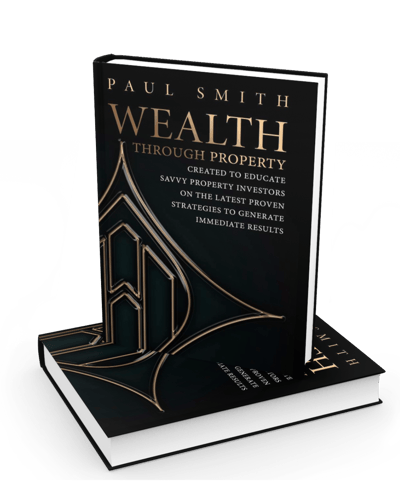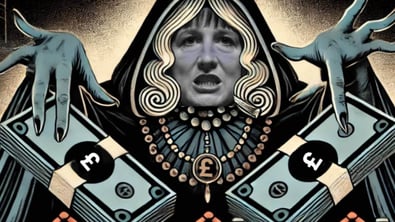The rental market in the United Kingdom has seen a drastic decline over the last three years, with an overall decrease of 40%.
This means that instead of 225,000 homes listed to rent across Britain in 2019, there are now only 134,000 available.
Every region has experienced significant drops in available rental properties, meaning those looking for a place to rent are struggling more and more to find a suitable home.
This blog post explains what it means for property investors.
What is a rental property?
A rental property is a residential or commercial income-producing property often utilized as an investment by its owner.
Rental properties can include apartments, houses, condominiums, vacation properties, office spaces, retail suites.
Perhaps the biggest benefit to owning rental property is that it’s a passive income source. This means that it is recurring income that requires relatively little effort to maintain. It can be an attractive option for people looking to make some money on the side, or even as additional financial security during retirement. Additionally, rental income may be taxed differently than employment income.
Rental property investment can be a great way to generate passive income and diversify your investments. Owning rental property offers several advantages, such as a consistent stream of income on top of potential appreciation in value when the time comes to sell. Additionally, being a landlord allows you to have more control over the kind of tenants renting your property, the rental cost, and the length of tenancy.
When investing in rental property it is important to consider what type of investment you are looking for: short-term or long-term. Short-term investments provide more immediate cash flow but have a higher risk of vacancy and tenant turnover. Long-term investments typically require less time spent managing the rental property, but may take longer to reap financial rewards.
You should also consider the cost of upkeep which can include unexpected repairs or renovations that can add up quickly. You will also want to factor in all your expenses from taxes and insurance to utilities and maintenance fees. It’s important to have a clear understanding of the costs associated with renting out a property to ensure a profit is made.
What are the advantages of renting out property?
Advantages of renting property includes:
Passive Income Source:
The biggest benefit to owning rental property is that it is a passive income source.
It is a recurring income that requires relatively little effort to maintain. It is an attractive option for people looking to earn passive income or provide further financial security during retirement.
Greater Security:
For people looking to take a temporary move out of work or for individuals inheriting a home that they don’t want to use for themselves, renting out property can provide security.
There is a large number of reasons that an individual may find themselves with an empty property. A vacant home is one that is potentially left open to vandalism and squatters and quickly gain maintenance issues. Renting the property to tenants can provide peace of mind.
Flexibility:
If market conditions aren’t right to move, then selling the property at a loss may be a mistake. Renting allows the property to be off-loaded temporarily until market conditions improve, giving flexibility to sell when the individual is in a better position to make profit from the sale.
Option To Move Back:
You may find yourself unable to stay in a current residence due to financial or other reasons. Should you need to move temporarily for a job, the rented home provides somewhere to return to, with respect of current tenant terms.
Property Value Appreciation:
Renting out a property means that you can benefit in the long-term from equity as it increases in value. This amount of appreciation varies by market, but gives an option profitability when the time is right.
Diversification of Investments:
As Paul Smith often explains the key to wealth is in diversification of investments. Owning a rental property allows you to diversify your portfolio, allowing you to add a layer of protection against risk and help you to take advantage of positive market swings.
What is happening in the rental property market?
As a result the costs of rents for new tenants have increased by 11%.
Research from Ocasa found that in 2019 there were 225,000 homes listed to rent across Britain’s rental market. The most recent data shows that this number has now declined to 134,000 homes per year – a decrease of 40%.
This decline is represented across every region of the UK.
In the North East of England, the number of available rental homes has fallen by 57% since 2019, while in Wales the number is down by 51% and in the South West, the number of available homes is down by 46%.
Significant falls are reported in London (-45%), Scotland (-42%), the North West (-42%), the East of England (-39%), Yorkshire & Humber (-37%), the South East (-34%), West Midlands (-30%) and East Midlands (-16%).
Sales and marketing director at Ocasa, Jack Godby, said, “As always, the vast majority of public attention has been given to the sales market since the start of the pandemic as soaring house prices and manic demand have stolen headlines week after week.
“Furthermore, focus on the housing crisis and shortage of affordable homes has been a subject of hot debate and endless political promises.
“But something hugely significant has also been happening in the rental market while going largely unreported. Stock is dwindling.
“A 40% nationwide decline in available rental homes in just three years is remarkable and more than a little concerning.
“For one thing, it means that demand is going to be incredibly high leading to a very competitive market. This will inevitably lead to rising rent values which, at a time when we have a cost of living crisis, is going to add additional stress to those who are already struggling to stay afloat.
What does the current rental market mean for renters?
Demand meanwhile for rented accommodation has risen to more than 50% above normal levels.
It means, for people like Ruth, that a searching for properties “seems completely hopeless”.
The BBC reports, “People who want to move but can’t find anywhere new are having to stay put. That means their old place doesn’t become available. And with people unable to move, fewer properties become vacant and appear in the estate agent’s window.”
Ruth said, “I keep the browser open on Rightmove, Openrent, Zoopla, Facebook Marketplace and there has been nothing. I’m trying to keep positive but it’s difficult.”
Richard Donnell, executive director for research at Zoopla added, “We’ve seen a big increase in demand for rented housing from record high immigration, the economy reopening (after the pandemic).
“But at the same time, we just haven’t seen much new investment by landlords in rented housing. And that’s creating a real crunch in availability.”
What does the current rental market mean for property investors?
The current rental market provides opportunities for landlords to save the market.
An increase in investment in property means that people who are struggling to find a new home have somewhere to go and more choice.
It also means that investors can benefit from the increase in rent rates.
Zoopla also reports that the short-term lets, such as holiday lets or Airbnb, can offer better returns for investors than long-term tenants. Zoopla has seen a three-fold increase in short-term lets since 2019.
Touchstone Education founder and experienced property investor Paul Smith said, “The current shortage of housing is creating built up demand for renters and pushing up prices, with many forced to stay in their existing properties that no longer meet their needs. Property investors can help to ease pressure on the market. With the knowledge that training provides they can find out how best to do this.”
To make the first steps on your property journey, claim your free Wealth Through Property e-book.
Wealth Through Property is the UK’s leading 2-day property investment course. It is designed to provide you with specialist knowledge of proven investor strategies. Learn how to get started and build your property portfolio and gain real-world advice.










